The squeezed consumer 2023
Want a snapshot of today’s consumer? Find out how Brits are coping with inflation, and what’s changed since summer 2022.
View the surveySurvey of 1,000 nationally representative working-age UK consumers conducted on Attest in February 2023. Comparisons made against data from August 2022.
Trend 1: More people are feeling the pinch than 6 months ago
The percentage of Brits feeling the pinch to a moderate degree has jumped +11.9 percentage points to 56.5%, although those feeling it to a high degree has fallen slightly, by -2.4 percentage points, to 30.3%.
The upside: messaging around the cost of living will resonate with most consumers.
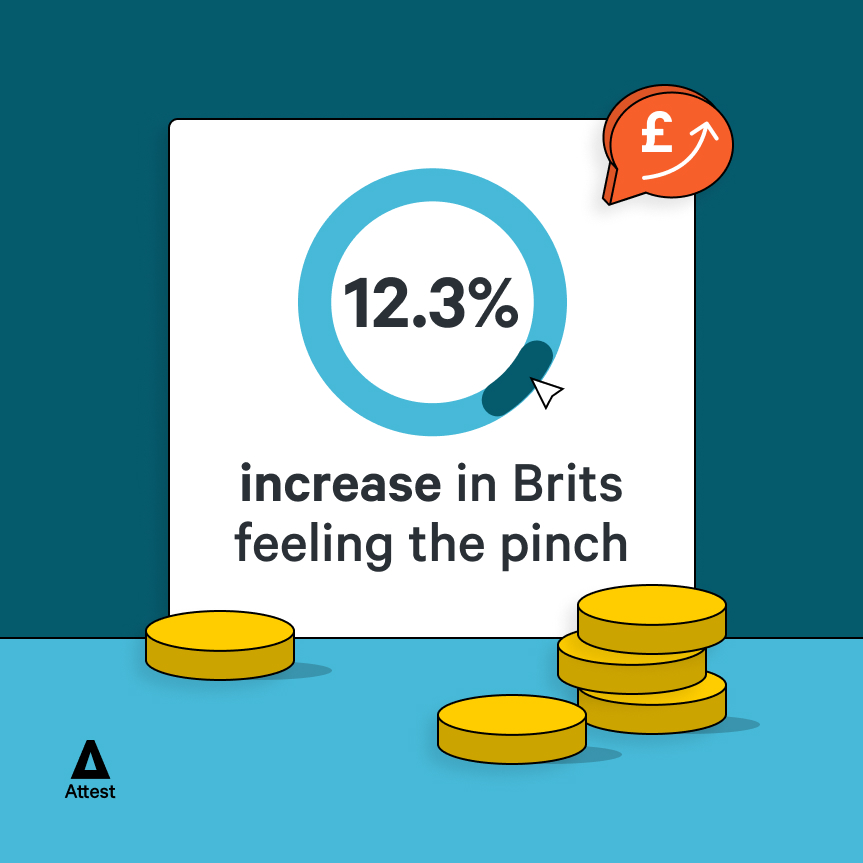
Trend 2: Worry about affording energy is declining but food is rising
Concern about paying gas and electricity bills has dipped -5.5 percentage points to 48.8%, but worry about affording food has increased by +3.4 percentage points to 44.4%. Meanwhile, anxiety about meeting debt repayments is also growing (up +2.9 points to 26.6%).
The upside: with the pressure of paying for energy easing (and summer on its way), consumer spending may get a boost.
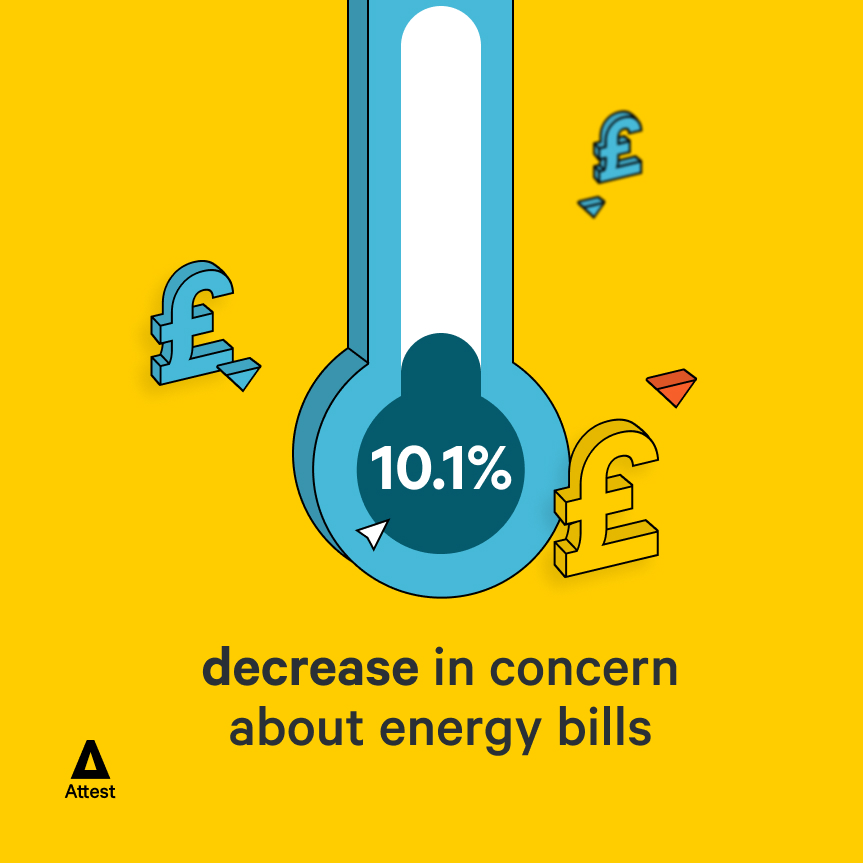
Get research like this straight to your inbox
Trend 3: People’s weekly food shop is costing them more
Brits estimate they spend an average of £68.62 on their weekly grocery shop right now. That’s an increase of £1.06 compared to 6 months ago. Gen X have the highest weekly spend, splashing out an average of £76.80 on groceries, versus Gen Z, who spend the least, at £58.05.
The upside: tighter budgets may mean higher engagement with promotions and special offers.
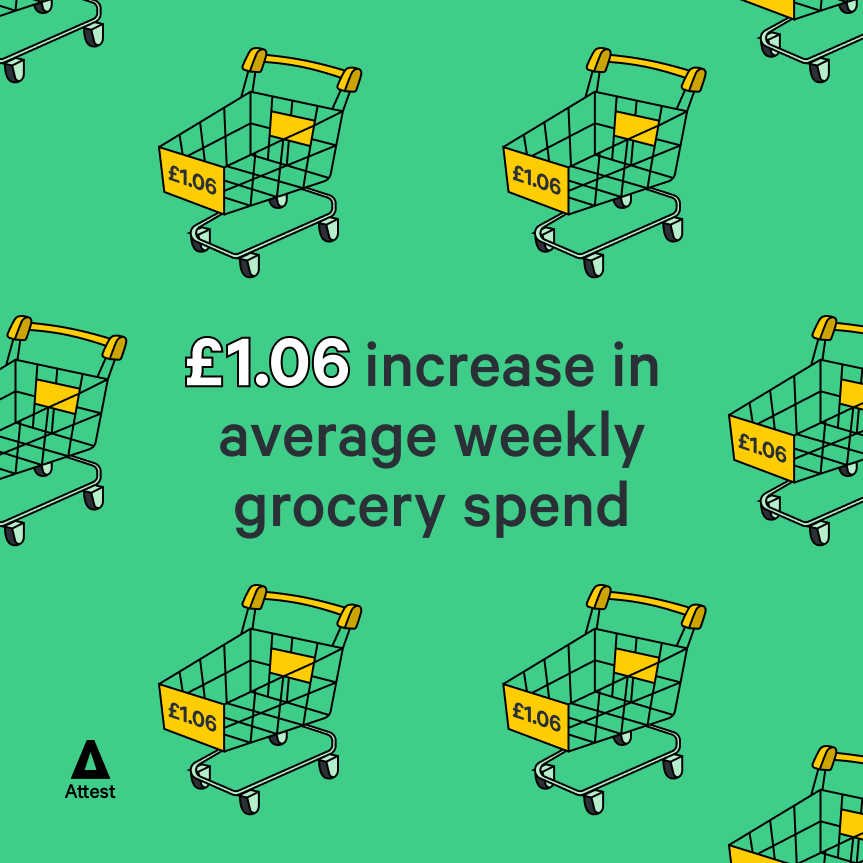
Trend 4: Brits are trying harder to stick to a budget when food shopping
The increased cost of food is forcing people to be more careful about what they put in their baskets. 47.2% of consumers are sticking to a budget, which is a +4.0 percentage point increase.
The upside: brands can support consumers with cost-effective recipe ideas and money-saving hacks.
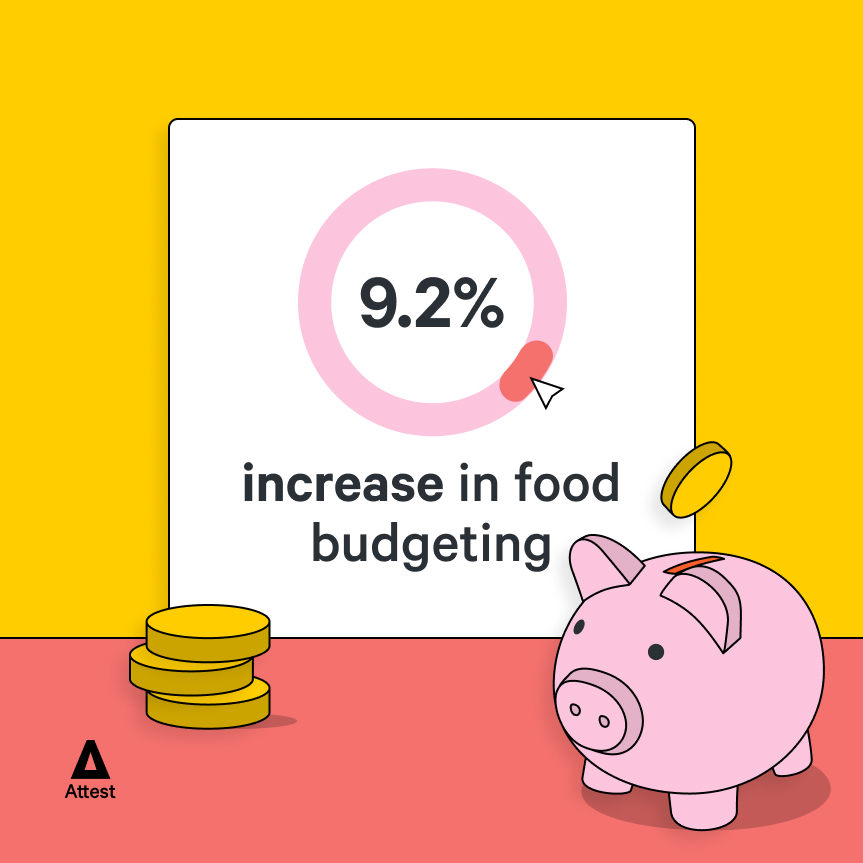
One of things we loved is the hands-on support Attest gives. The fact that we as marketers can feel confident in being able to run really interesting insights surveys is why we continue to work with Attest.
Lauren Sims, Head of Consumer Marketing, Trustpilot

Trend 5: Consumers are switching to cheaper supermarkets
43.1% of consumers say they have switched to cheaper supermarkets to save money on food: that’s an increase of +3.7 percentage points.
The upside: supermarkets have the opportunity to win market share as consumers shop around.
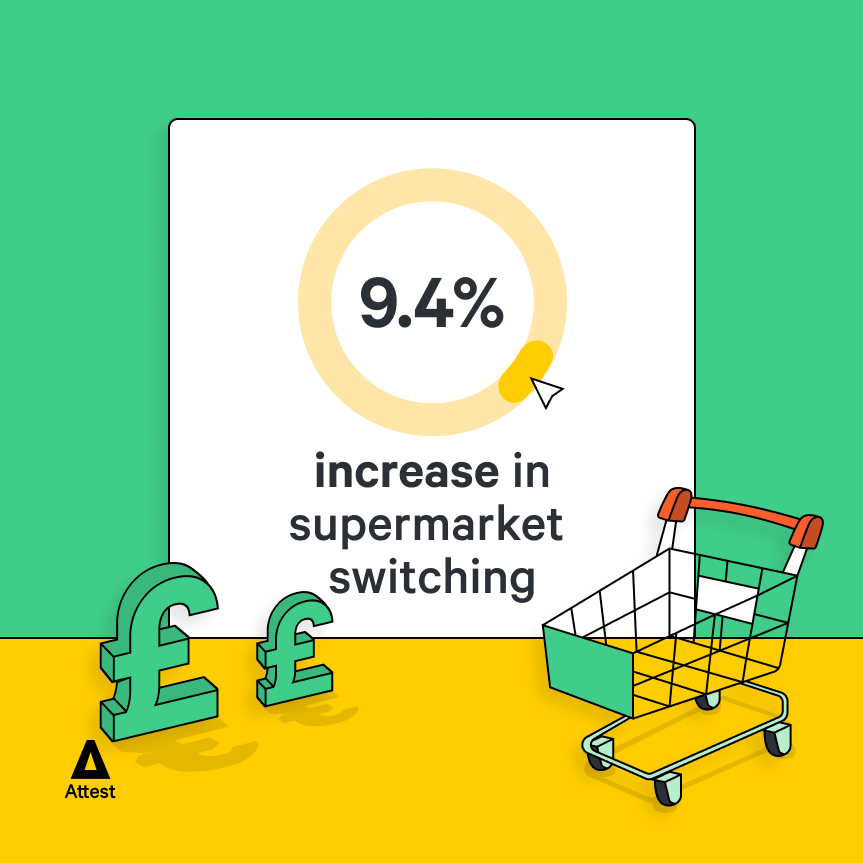
Trend 6: Conscious consumers are being forced to cut back
The amount people are willing to spend for environmentally friendly products has reduced. Those prepared to pay “a lot more” falls -3.9 percentage points to just 1.3%, while those who will pay “a moderate amount more” declines -1.6 percentage points to 11.3%. Older consumers are the least likely to pay extra.
The upside: environmentally friendly products remain in-demand, with almost half of shoppers (46.4%) willing to pay a small premium.
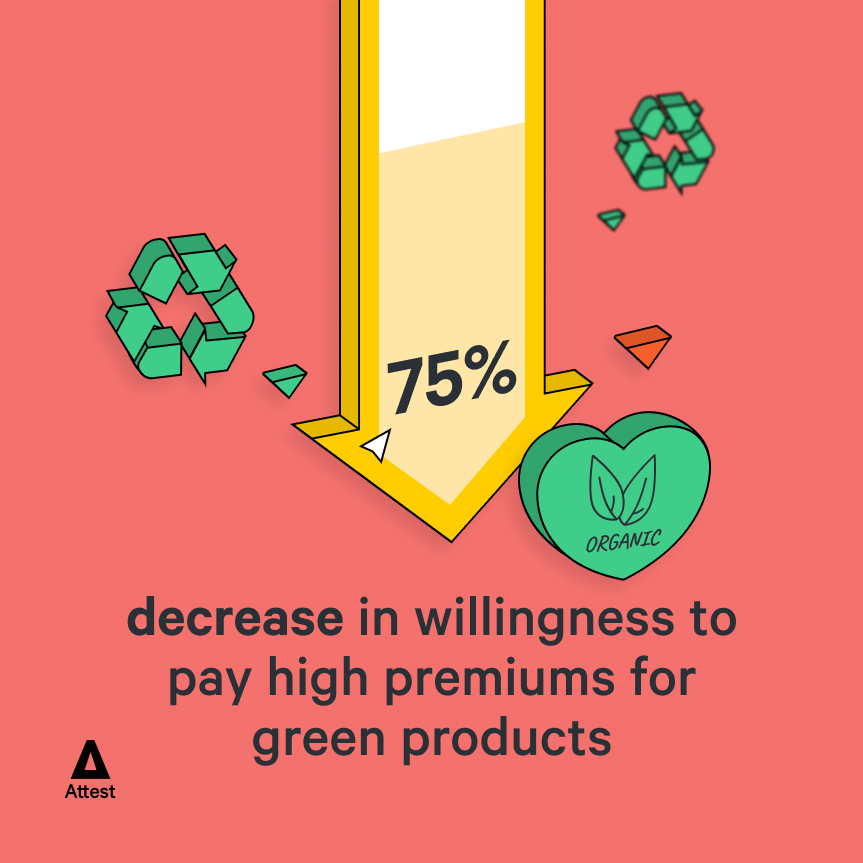
Stay up to date with the latest data
Trend 7: More people are using their cars again
With petrol prices lower than during the summer of 2022, Brits are more likely to be driving. We see a -4.2 percentage point decrease in the number of people trying to save money by using the car less (to 35.6%). Millennials are most likely to be behind the wheel again.
The upside: out-of-town retail parks and superstores should benefit from increased car usage.
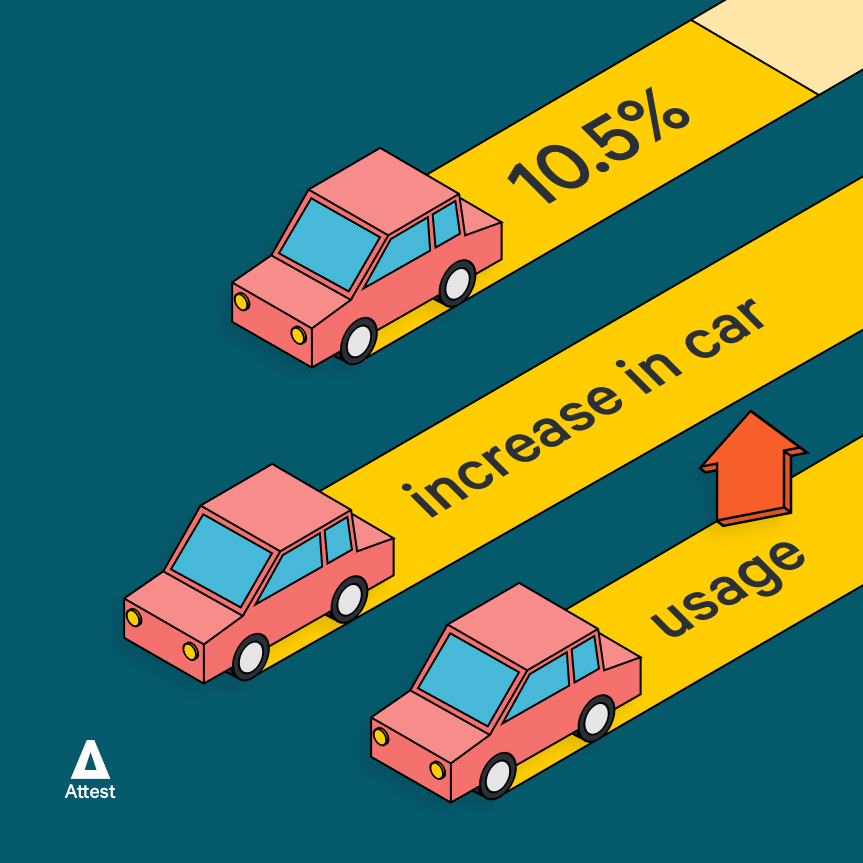
Trend 8: The great cancelation for subscriptions is slowing
While 42.9% of consumers say they are cancelling subscriptions to save money, this figure has fallen by -3.1 percentage points, indicating that the downward trend is levelling out. Millennials, in particular, appear to have completed their subscription cull.
The upside: remaining subscribers are likely to be bigger brand advocates.
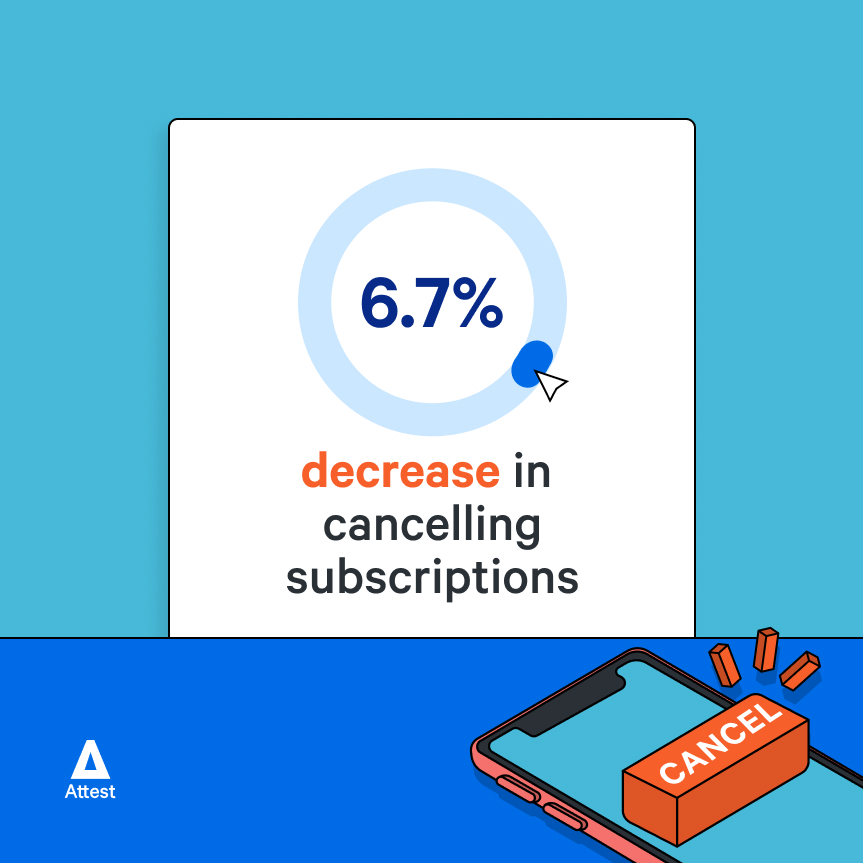
The insights have been invaluable. I’ve used Attest to understand which messages resonate most with consumers, and also what attitudes are towards new healthcare trends.
Rebecca Porter, Consumer Research Manager, Boots

Trend 9: Brits are saving less money
The percentage of people saving more than £50 each month has declined by -4.7 percentage points to 47.0%, while those saving £50 or less has increased +4.3 percentage points to 24.5%. Meanwhile, 21.8% of people are not saving at all.
The upside: it’s a good time for financial services that support small savers.
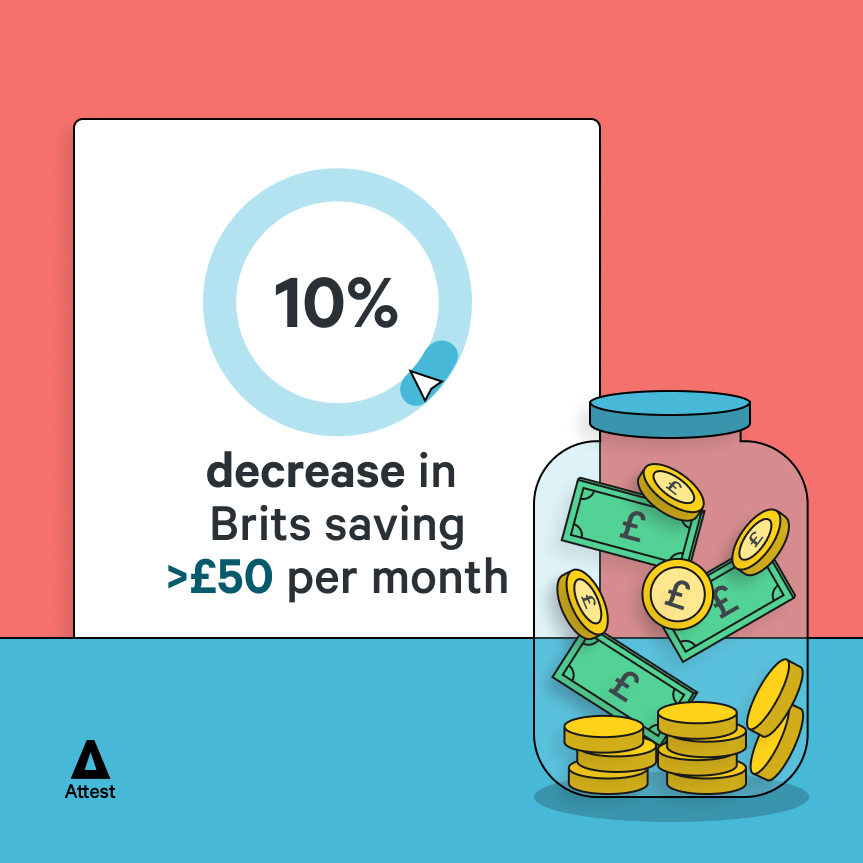
Trend 10: Brits are feeling more optimistic
Brits are feeling less financially secure than they were 6 months ago (down from 4.9 out of 10 to 4.8) and less happy (down from 5.6 out of 10 to 5.4). But in spite of this they report being more optimistic about the future (up from 4.5 out of 10 to 5).
The upside: people can see a brighter future on the horizon and brands can build on this with optimistic messaging to buoy the public mood.
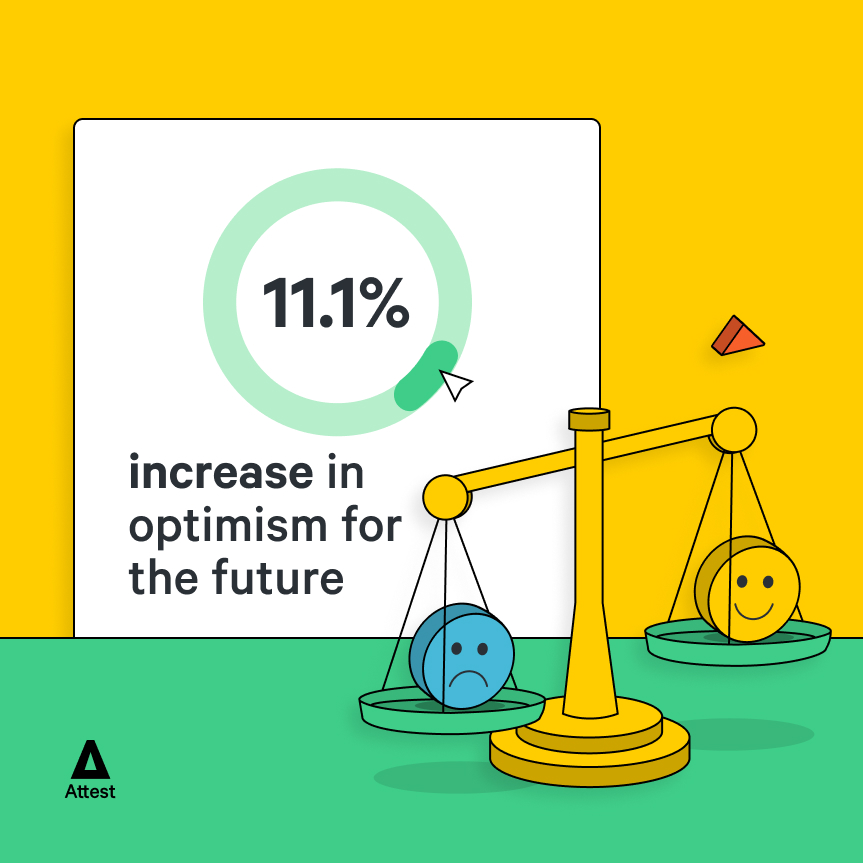
Get our latest reports first
Get a direct line to
inflation-squeezed consumers
Quick and easy to run surveys
Get going in minutes with our intuitive platform and get results quickly, our average survey closes in 1 day 19 hours.
High data quality
We use automated and human checks on your data, you can be sure you’re making the right business decisions.
Research guidance
You’ll be supported by a dedicated industry professional every step of the way to help you get the most from your research.
Find your target audience
Our audience lets you access 150+ million people across 59 countries, and use filters and quotas to make it as targeted as you need.